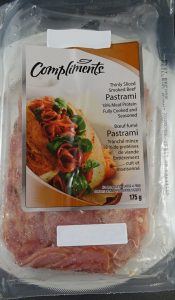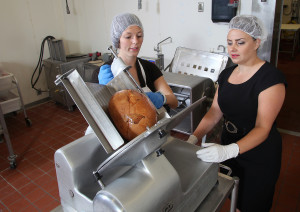New research from New Zealand has found that 75% of pregnant women aren’t aware of what foods are potentially dangerous.
 Researchers took a survey of 205 pregnant women, both those in a hospital and online, between December 2017 and January 2018. The results, according to BabyGaga, can be read in two ways. The good news is that the average woman scored 95% correct. The troubling news? Only 25% scored a perfect score. With things like deadly foods for fetuses, you need 100% in order to be completely protected from the dangers.
Researchers took a survey of 205 pregnant women, both those in a hospital and online, between December 2017 and January 2018. The results, according to BabyGaga, can be read in two ways. The good news is that the average woman scored 95% correct. The troubling news? Only 25% scored a perfect score. With things like deadly foods for fetuses, you need 100% in order to be completely protected from the dangers.
What danger foods weren’t readily known by expectant mothers? Baked goods with added cream or custard, hummus, certain salads, and soft/semi-soft Cheese all were among the most missed.
Hummus typically purchased in packages run the risk of listeria. This bacteria poses a danger to an unborn baby as it can cause the immune system to weaken. This, in turn, leads to listeriosis. Pregnant women are told to prepare any hummus at home and make sure to eat it while it is still fresh.
Refrigerated, ready-to-eat foods are generally a no-no. Two recent recalls highlight the risk.
The Canadian Food Inspection Agency (CFIA) has issued a recall for a popular brand of lunch meat.
Levitts Foods (Canada) Inc. is recalling Compliments Smoked Beef Pastrami 175 g with a best before date of Dec 25th, 2020
 The CFIA said people should not consume the recalled product and instead throw it out or return it to the store they purchased it from.
The CFIA said people should not consume the recalled product and instead throw it out or return it to the store they purchased it from.
The recalled Pastrami was sold at stores in Alberta, Nova Scotia, Ontario and possibly across the country.
Food contaminated with Listeria monocytogenes may not look or smell spoiled but can still make you and your family sick.
The CFIA said there have been no illnesses reported.
This recall was triggered by the Canadian Food Inspection Agency (CFIA) test results. The CFIA is conducting a food safety investigation, which may lead to the recall of other products. If other high-risk products are recalled, the CFIA will notify the public through updated Food Recall Warnings.
The CFIA is verifying that the industry is removing the recalled product from the marketplace.
In the UK, Tesco has issued a recall of 80G packets of its own-brand spicy chorizo slices.
Food standards officials reported a detection of Listeria monocytogenes inside some packs of 16.
Packets with the best before end date of 19/12/20 should return the product immediately.








